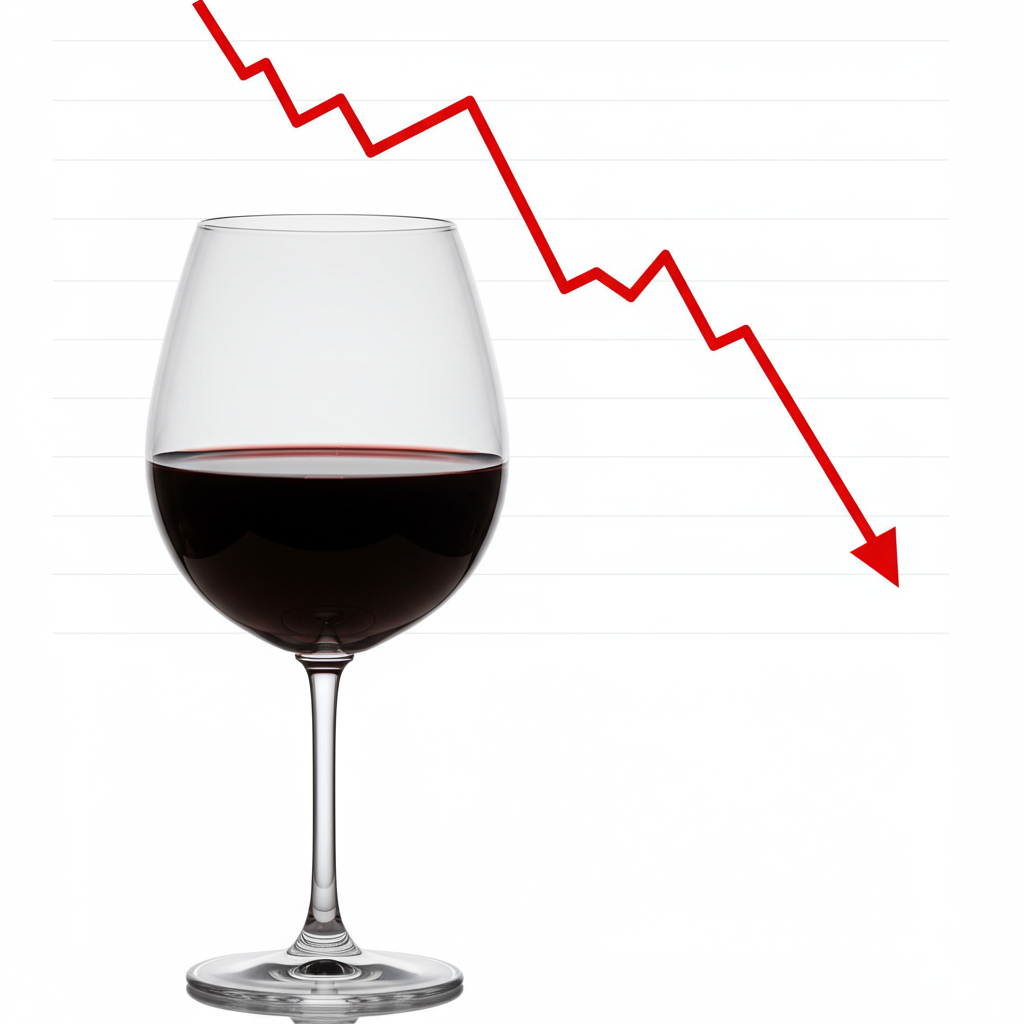For years, many believed that moderate alcohol consumption, perhaps a glass of red wine a day, might offer health benefits and even extend lifespan. However, recent scientific research is painting a starkly different picture, suggesting that even small amounts of alcohol can negatively impact health and potentially shorten your life. Experts are revealing concerning figures that challenge previous understandings about drinking habits.
A significant study, including research published in the Journal of Studies on Alcohol and Drugs and highlighted by experts like Dr. Tim Stockwell, indicates a clear link between alcohol intake and reduced life expectancy. This research suggests that the notion of alcohol having a protective effect, even in small quantities, is not supported by the latest evidence.
Quantifying the Impact on Lifespan
Based on population averages, researchers have provided specific estimates for how much time alcohol consumption might cost. These figures demonstrate a dose-response relationship – the more you drink, the greater the potential reduction in lifespan:
Consuming just two drinks per week could potentially decrease life expectancy by 3 to 6 days.
Drinking seven drinks per week (equivalent to one drink per day) might reduce life by around 2.5 months.
For those regularly consuming 35 drinks per week, the potential loss could be up to 2 years from an individual’s lifespan.
These numbers underscore that any level of alcohol consumption carries a risk, and the effects are cumulative over time.
The Alarming Link to Cancer
Beyond lifespan, alcohol is a well-established carcinogen. Experts like Dr. Helen Croker from the WCRF explain the mechanism: when your body metabolizes alcohol, it produces acetaldehyde, a toxic compound that directly damages DNA. This damage can lead to genetic mutations, significantly increasing the risk of various cancers.
Certain organs and tissues are particularly vulnerable due to direct exposure and the body’s detoxification process:
Mouth and throat (directly exposed)
Liver (primary detoxification organ)
Colon and rectum
Specific data on cancer risk increases associated with drinking is particularly alarming. Dr. Harriet Rumgay from the WHO notes:
Men who consume two pints of alcohol per day face a 38% greater risk of colorectal cancer, a 94% increase in mouth or throat cancer risk, and an 84% higher risk of liver cancer.
Even drinking at a seemingly “moderate” level of one drink per day is associated with a 17% increased risk of bowel cancer.
The health risks escalate quickly as weekly alcohol units increase. While risks are minimal at 1-3 units/week, consuming 21 units/week or more can lead to significant life loss (approx. 2 years+) and major increases in the risk of colorectal, mouth, throat, and liver cancers. Binge drinking, even if not daily, can still push individuals past these risk thresholds.
Debunking the Red Wine Myth
The popular belief that red wine offers unique health benefits, often attributed to compounds like resveratrol, is largely unsupported by current research when considering the overall impact of alcohol. Experts clarify that any potential benefits from these polyphenols are significantly outweighed by the harmful effects of the alcohol itself. Beneficial polyphenols are readily available from non-alcoholic sources such as grapes, berries, green tea, and coffee. Health bodies like the WCRF recommend avoiding alcohol entirely for long-term health, emphasizing that alcohol’s negative impact far surpasses any perceived cardiovascular gains.
Challenges and Strategies for Reduction
Understanding these risks is one step, but reducing consumption can be challenging, particularly for men. Research by Professor Richard Cooke highlights factors like social norms, peer pressure, and feeling judged for declining drinks.
For those seeking to reduce or moderate intake rather than abstain completely, several strategies can help:
Opt for low or no-alcohol alternatives.
Start and end social events with non-alcoholic drinks.
Space out drinking days.
Track your weekly alcohol units to understand true consumption levels (using apps or online calculators can be helpful).
The Cumulative Effect
The science is increasingly clear: alcohol’s health effects are cumulative. Even habitual low-level drinking over many years contributes to an increased lifetime risk of various diseases and premature death. For optimal health outcomes, particularly as individuals age, the consensus among experts is that reducing alcohol intake is beneficial. While occasional, small amounts are unlikely to cause major harm, the overarching message for health is simple and direct: “Less is better, and none is best.”




